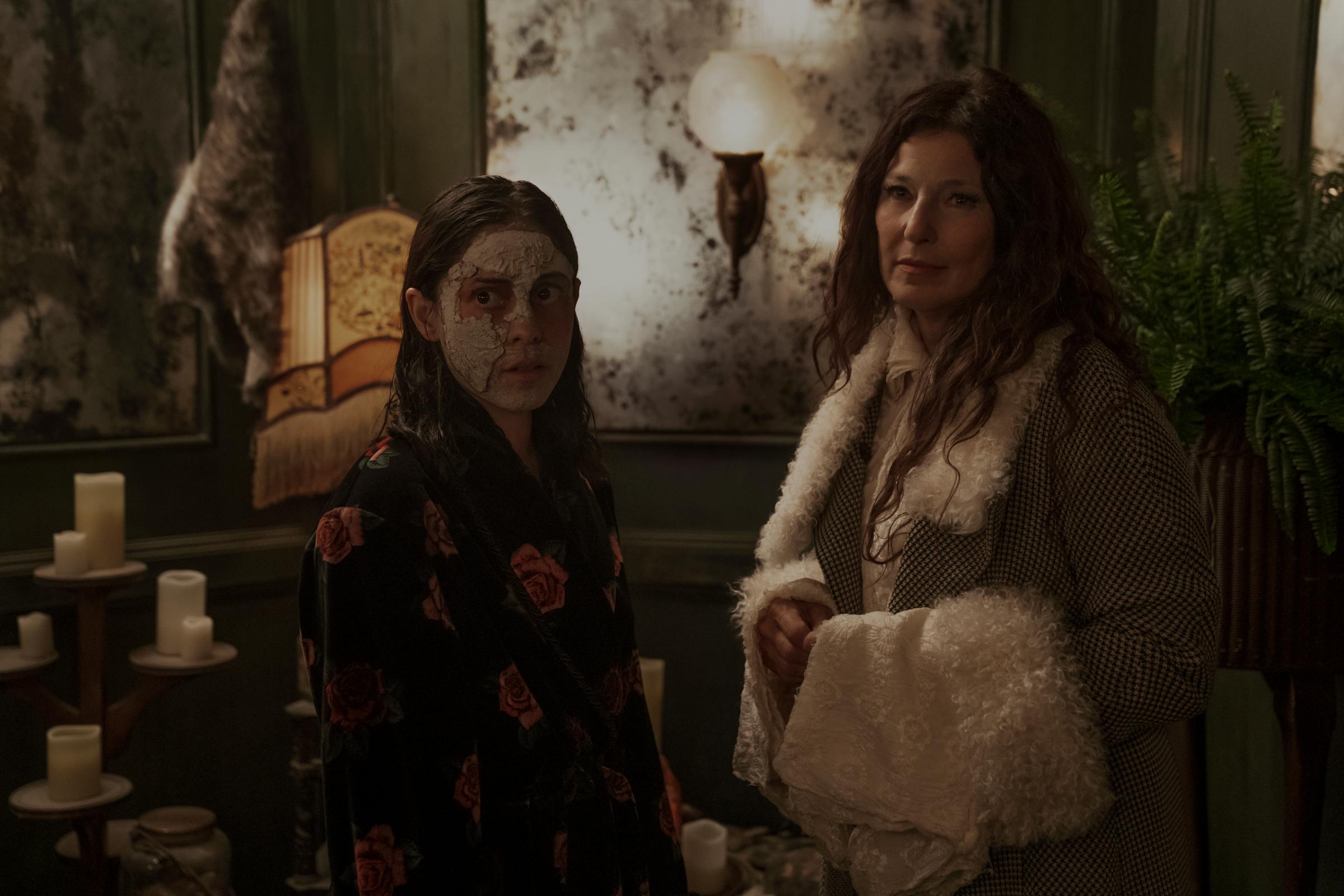There’s nothing Hollywood loves more than luring in beautiful, young people with big dreams and crushing them under the heel of its Ferragamos. Much of the time, the person doing the stomping is a man and the person getting squished is a woman. We know this—and we have known it for decades—because it’s a story Hollywood keeps retelling. From the oft-retold melodrama of Peg Entwistle’s Hollywood-sign suicide and the golden-age gossip of Kenneth Anger’s Hollywood Babylon to postmodern riffs like David Lynch’s brilliant Mulholland Drive and Nicolas Winding Refn’s divisive The Neon Demon, audiences seem to have a bottomless appetite for the tale of the ingénue eaten alive by a predatory, superficial entertainment industry.
The latest regurgitation of this hoary premise is Brand New Cherry Flavor, a lurid eight-part horror series that comes to Netflix on Aug. 13. Don’t be misled by the title. Although each gore-soaked frame radiates confidence that it’s blowing our minds, the show has nothing new to say. What little it does contribute to the post-#MeToo discourse around predatory men, vulnerable women and the price of fame falls somewhere between reactionary and obvious.
Based on the 1996 novel by Todd Grimson and set in the early ‘90s, a backdrop that mostly just looks like a noirish 2021 minus the smartphones, Cherry Flavor opens with young filmmaker Lisa Nova (Rosa Salazar of Alita: Battle Angel and Undone) arriving in Los Angeles. She has been summoned there by the abrasive, powerful but somewhat washed-up producer Lou Burke (Eric Lange, recently seen in HBO’s Perry Mason reboot), on the strength of a spooky short film she made. He wants to adapt it into a feature, with Lisa as director, and cuts her a $10,000 check to option it on the spot. Then—surprise, surprise—he makes a move on Lisa, she rejects him and suddenly she starts hearing about a different director attached to the project.
But Lisa is not your typical damsel in distress. (This, I think, is where the show is supposed to be breaking ground. And maybe it would have, 25 years ago.) Driven by ambition derived from her longing to meet a mother who disappeared shortly after her birth, Lisa vows to get her movie back—and to make Lou’s life miserable in the process. Soon enough, a witchy, soothingly maternal, hippie-looking woman called Boro (the great Catherine Keener) materializes out of the ether to catalyze this revenge. Can you see the “be careful what you wish for” twist coming?

Cherry Flavor has an extremely predictable plot. I’m not the kind of viewer who tries to guess what’s around each narrative corner, but this show’s fidelity to familiar archetypes and other genre tropes made it hard not to do so—and I was almost always right. In fairness, the hacky story beats seem to be by design, at least to some extent. Deadpan dialogue (“I’m actually not f-cking your dad—I’m putting a curse on him and I need some of his pubic hairs,” Lisa explains to Lou’s adult son in one scene) creates an atmosphere of detached knowingness. As in American Horror Story, whose first season gave Salazar her big break, the multi-episode escalation of violence and gore doubles as an escalation of absurdity. Yet the self-aware tone serves no real purpose. The show may be attempting humor, but it is not actually funny.
What it is, is a technically competent, thematically bankrupt, utterly gratuitous pastiche of L.A. noir and body horror in the early David Cronenberg mold. For no small number of Netflix subscribers, that will surely be enticement enough. A trio of strong lead performances counteracts the flatness of the characters as written; Keener, in particular, uses her inherent warmth to delightfully diabolical ends. (Unfortunately, the wonderfully funny Good Place breakout Manny Jacinto feels wasted in a bland role as Lisa’s old friend.)
Still, even the style-over-substance horror crowd seems bound to be disappointed by Cherry Flavor. Yet another miniseries that should’ve been a 90-minute film, it wrings way too much content out of too little material. The monsters—writhing spectral figures, literally faceless women—are nothing we haven’t seen before. There’s so much screen time devoted to people, usually Lisa or Lou, writhing in pain that you’d probably have to be some kind of niche fetishist to get any enjoyment out of it. Garden-variety sadists and voyeurs will likely be bored.
The show is so unpleasant on a moment-to-moment level, it can make you forget that all the discomfort also serves some pretty repulsive ideas. “This world we live in is predators and prey. And each and every one of us is both,” Lou tells Lisa, in the first episode, when she confronts him about his betrayal. “Are you gonna tell me you’ve never used anybody for the sake of making something?” This is essentially an “all lives matter” response to Hollywood’s silence breakers—and though Lou is hardly framed as a hero, his monologue reverberates through the episodes to come. As disappointing as such a glib argument would be from a better-made series, it renders Cherry Flavor fully execrable. Days after polishing off this ostensible treat, I’m still brushing the bad taste out of my mouth.
More Must-Reads from TIME
- Caitlin Clark Is TIME's 2024 Athlete of the Year
- Where Trump 2.0 Will Differ From 1.0
- Is Intermittent Fasting Good or Bad for You?
- The 100 Must-Read Books of 2024
- Column: If Optimism Feels Ridiculous Now, Try Hope
- The Future of Climate Action Is Trade Policy
- FX’s Say Nothing Is the Must-Watch Political Thriller of 2024
- Merle Bombardieri Is Helping People Make the Baby Decision
Contact us at letters@time.com